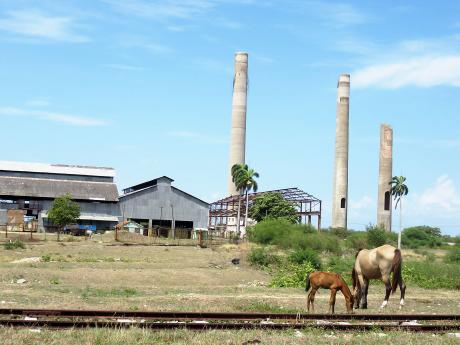Singing ‘Sly Mongoose’ in Cuba
Ninety-one-year-old Ivy Lewis of Guantanamo sang Sly Mongoose - the well-known Jamaican folk song - in a clear voice. At 21, in 1948, she was sent to her aunt, a domestic helper for American Managers with the United Fruit Company in Camaguey, Cuba, after she gave birth to her first child out of wedlock, and her family decided she should 'go away' for a while.
Ivy has never returned to Jamaica and recalls that initially, life in Cuba was comfortable even though she frequently wept for her son, whom she had left behind. Later, life became very hard after she was abandoned by her husband, who she met and married there. Like many Jamaican and Cuban workers, he decided to seek exile on the US Base to avoid the close scrutiny to which they were subjected after the 1959 Revolution.
She acknowledges the help of the Cuban Government, which enabled her to feed and clothe her children until her first son (born in Cuba) started to work at age 17 in 1972. Today, Ivy remembers her family and the son she has never seen since leaving Jamaica.
Hardy Henry
Eighty-eight year old Hardy Henry is a second-generation Jamaican whose mother went from New York to Banes in Holguin and then to Guant·namo. He is one of the last Jamaicans to work on the US Naval Base but explains that he did not live on the base.
He has travelled to Jamaica twice and recounts that he was selected go to the gate of the base to collect all the pensions and distribute them. These days, he thinks about his Jamaican parents and the rich culture they imparted to him. His hope is for all descendants of Jamaicans in Cuba to preserve this culture and learn English. "We should never forget Jamaica, we should never forget our English," he muses.
Pastor Williams in Preston
In Prescott, Holguin, renamed Guatemala after the 1959 Revolution, 88-year-old Methodist Pastor Abraham Williams recalls that in 1946, his family returned to Jamaica due to a disagreement between his father and his American employer. Shortly after, his mother died and his grandmother returned to Jamaica to assist his father with his young children.
She later returned to Cuba to work with an American family, saved money, and sent for him and his sister to rejoin her in Cuba. They did not maintain contact with his father in Jamaica, and he and his sister were raised by their grandmother in Cuba.
He remembers that Jamaicans worked as carpenters, cooks, gardeners, masons, and engineers. Many of them lived in barracks on the sugar plantation and mills/centrales and they were preferred by the Americans because of their English.
Williams' recollection is that many Jamaicans encountered hardships as wages were low and working conditions were poor. They encountered racism and were often criticised for bringing Obeah into the country - even though only a few were involved in this practice. In the 1960s, many retired without a pension, and life became even harder for them.
Some benefits were provided to them after the 1959 Revolution, but many found it difficult to adjust to the new systems and returned to Jamaica. Many had not maintained contact with relatives in Jamaica and ended up in very impecunious conditions. Others left for the US, and some just lived lonely lives in Cuba.
In the 1950s until 1965, Williams served as a consular subagent to the British Consulate in Santiago de Cuba. He reported deaths, births, incidents involving Jamaicans, processed documents for those who decided to repatriate, and maintained a census of Jamaicans in Prescott.
Williams attended Methodist conferences in Kingston, Guyana, and Trinidad and Tobago in the 1970s. Today, he speaks Spanish with his neighbours, English with his family and fellow Jamaicans, and sings and prays in English.
Lloyd Wilmott in Banes
Eighty-five-year-old Lloyd Wilmott Murray, whose parents are originally from Montego Bay, is a first generation Jamaican in Banes. His father was among the first-Jamaicans who were recruited to work in Banes when the United Fruit Company was switching from banana to sugar in the early 1900s at the start of the sugar boom.
They were employed to plant and cut sugarcane, work as welders, mechanics, masons, cooks, carpenters, and stable hands. There were 52 houses built for Jamaicans on the central and people were assigned houses based on their rank and types of jobs. The most elaborate houses were reserved for Americans while in the Jamaican section, they also received lodgings based on their level.
In the 1940s, Wilmott served as a waiter in the Jamaican Club House and recalls the racial/social system in Banes, evident in the different clubs for each social group. There were several lodges and churches such as the Methodist, Baptist and Seventh-day Adventist, which helped people to settle in on their arrival in Cuba.
Wilmott explains that Marcus Garvey visited Banes in 1927 and urged Jamaicans to embrace his Pan Africanist ideology. He was not a member but knew the Liberty Hall and understood its role in uniting West Indians in Banes at a time when they faced serious discrimination.
All four persons are proud of the Jamaican Diaspora in Cuba. They know the struggles of their people who brought up families between two cultures and define themselves as Cuban and Jamaican who will never forget Jamaica and Sly Mongoose.
- Paulette A. Ramsay is a professor of Afro-Hispanic literatures and cultures in the Faculty of Humanities and Education at the University of the West Indies, Mona. This article is one in a series that seeks to promote and highlight the impact of the arts and humanities on an individual's personal development and career path. Please send feedback to fhe@uwimona.edu.jm.




